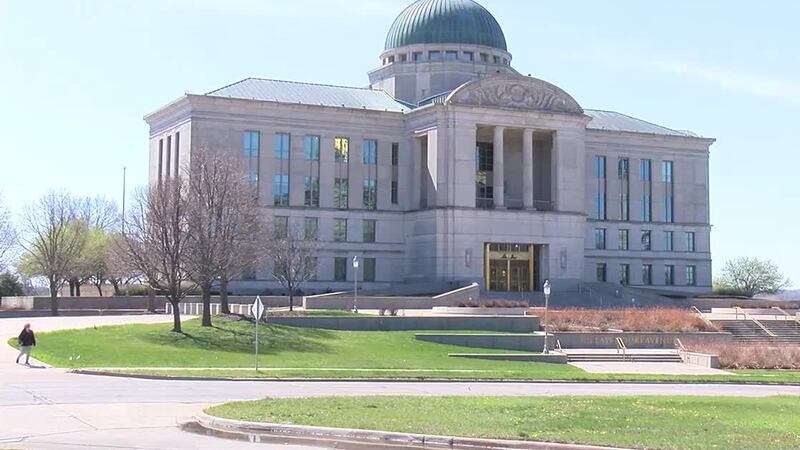Should private company have access to your land for project? Iowa Supreme Court hears farmer’s case

DES MOINES, Iowa (Gray Media Iowa State Capitol Bureau) - Seven justices on the Iowa Supreme Court will now decide whether a Hardin County farmer has the right to refuse to let Summit Carbon Solutions onto the property to survey for its carbon sequestration pipeline project. The case could impact the future of land owners’ rights in the state, as well as Summit’s five-state project.
Here is more information on the seven members of the Iowa Supreme Court.
Tuesday night, the justices heard oral arguments on the case, part of the court’s commitment to occasionally hear cases outside the supreme court’s building. In this case, justices moved proceedings almost literally next door to a familiar place: the old supreme court chambers inside the Iowa State Capitol.
As she opened the proceedings, Chief Justice Susan Christensen said the opportunity for justices to again use the historic chambers was “pretty cool.”
The case involves Kent Kasischke, a Hardin County farmer who refused to allow Summit to enter his land to conduct a survey for its $8 billion carbon capture pipeline that would transport emissions through Iowa, Nebraska, Minnesota and the Dakotas before storing the liquified, pressurized gas deep underground.
Kasischke maintains that Summit doesn’t have the legal right to access his land for the survey before it gets eminent domain authority from the state. Doing so, he argues, violates his constitutional rights by allowing the company to take private property without compensation.
The Iowa Utility Commission conditionally granted the Ames-based company eminent domain authority as long as it meets certain conditions.
In September, a group of 37 Iowa Republican legislators announced a lawsuit that aimed to stop Summit’s ability to use eminent domain for its project.
One of those lawmakers appeared on “Inside Iowa Politics” in June to explain why he doesn’t think a private company should have the right to use someone’s land for a for-profit venture.
The Iowa District Court for Hardin County previously ruled against Kasischke. The summary of the case stated:
“The Iowa District Court for Hardin County ordered that Kent Kasischke could not interfere with Summit Carbon Solutions’ entry upon his land for the purposes of surveying and examining the land to determine the direction or depth of its proposed carbon dioxide pipeline.”
Summit argued in its case before the supreme court that the company has followed Iowa law and gave the necessary notice to the land owner that it wanted to survey the farm property for the pipeline project.
Approximately 1,000 miles of the pipeline for the 2,500-mile project would travel through Iowa.
Summit has also argued that previous court rulings have upheld the right for a private company to survey land before using eminent domain privileges.
Copyright 2024 KTIV. All rights reserved.













